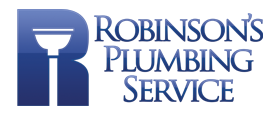
Over time items that aren’t specifically designed to break down in drain pipes will wreck havoc on your plumbing system. What happens is these items collect in bends of the pipes or in narrow pipes that make up your private drainage system.
Warning Signs of Plumbing Drain Problems
The plumbing issue may present itself in a variety of ways, for example:
- Slow drainage
- Clogged drains
- Backed up water when using one or more fixtures
- Odors
- Gurling sounds
Let’s not forget the severity of how clogged pipes lead can lead to raw sewage backing up in your home, your neighbor’s home, yard, park, or in the street. Exposure to sewage is not only unpleasant, but it also potentially harmful for your health.
Sewage cleanup is often an expensive process. If it occurs within a private system, the homeowner is responsible for the bill. Sewage cleanup on public property can also cost you, as it leads to increased maintenance and operation costs for the sewer department, resulting in higher sewer bills.
How to Prevent Clogged Pipes and Drains
Whether it’s in the kitchen or bathroom, including sinks, showers, tubs and toilets, all of these plumbing fixtures are susceptible to plumbing clogs when the wrong things are put into the drain pipes. Fortunately, preventing drainage problems is easy and involves following a few best practices and tips for keeping your kitchen and bathroom drains healthy and functioning properly.
Kitchen Drains
The big offenders at the kitchen sink are grease, oil and fat. Grease and fat can seem harmless when cooking, since they are liquid form when heated, but they turn solid as they cool to room temperature further down in the pipeline. Oils remain liquid at room temperature, but sticks
to the surface of your pipes, creating the perfect surface to attract grease.
Food scraps should also be kept out of the drain. It is a common misconception that garbage disposals make food safe to send down the drain. While they do chop solid material into small pieces, these small pieces can still collect and block your pipes.
Food peelings, like onion skins, are particularly good at sneaking past the disposal and backing up pipes. Meat scraps, butter and dairy products contain oils and fats that cause problems as well.
Other items to keep out of the kitchen drain:
- Egg shells
- Coffee grinds
- Produce stickers
- Sauces
- Shortening
- Peanut butter
- Cheese
- Salad dressing
- Gravy
- Mayonnaise
Bathroom Drains
Toilet paper is made to break down in the sewer system, but you should keep other paper or cotton based products like baby wipes, paper towels and feminine products away from the drain, even if they are labeled as “flushable”.
Avoid flushing medications, as studies have found antibiotics, pain killers, antidepressants and other drugs are contaminating drinking water in municipalities throughout the country. If you have unwanted or expired medications, check to see if there is a medicine take-back program nearby. Local pharmacies, hospitals and law enforcement agencies often organize drives to collect unneeded prescriptions.
Cleaning products and solvents can damage fragile ecosystems when flushed down the drain. Water treatment plants remove a a great deal of chemicals from the water supply, but too many dangerous contaminants still end up in our lakes, rivers and oceans.
To keep bathroom drains flowing smoothly, we recommend cleaning the hair and other debris out at least once every year, if not once every 6 months. Use caution is you’re attempting this yourself, as dismantling drains can cause leaks if not realigned and installed properly.
Other items to keep out of bathroom drains:
- Disposable diapers
- Flushable kitty litter
- Nail polish
- Nail polish remover
- Cotton balls
- Q-tips
Repairing Clogged Plumbing Fixtures
Depending on your comfort level and the severity of the problem, some of you may be able to perform your own plumbing repair. In many cases, minor clogs and backups can be remedied with a snake and a little elbow grease.
However, stubborn drain clogs, ones that are deeper in the pipe or those that have been building for quite some time will likely require the expertise of a professional plumber. If this is your situation, it is best to have it looked at as soon as possible so the plumbing problem (and the plumbing repair bill) don’t become even more of a headache for you.



